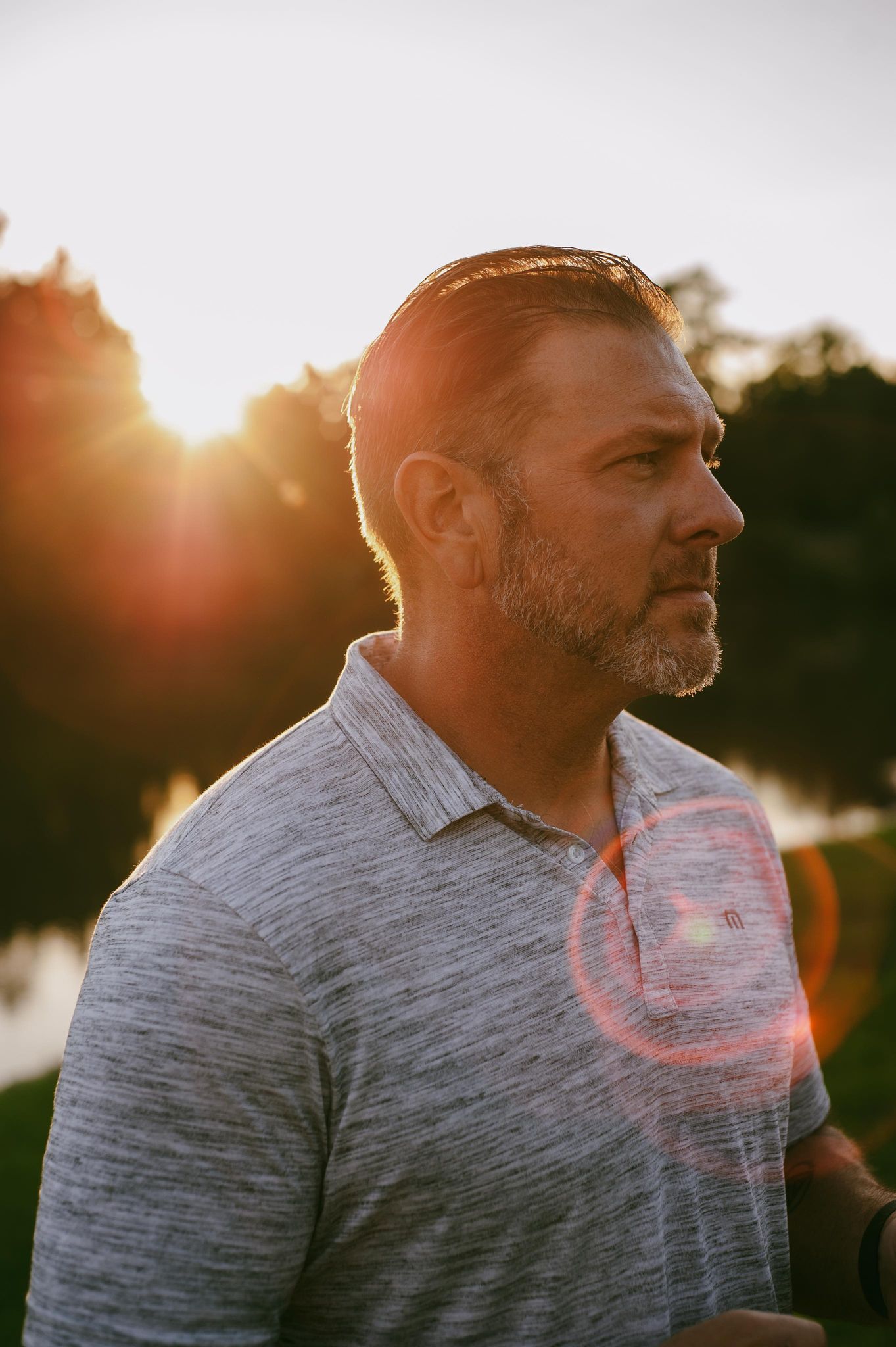Lifestyle
Eric Oberembt Believes in Authenticity and Becoming The Human You Were Born To Be, Here’s Why

Authenticity and becoming the person you were born to be are highly desirable traits. Most people want to be appreciated for who they are. They want to be supported in becoming the human they were born to be. This endeavor contributes to a holistic well-being that makes you happier. What’s more, authenticity makes you feel fulfilled and boosts your self-esteem.
Eric Oberembt says that everyone should strive to become the human they were born to be. Relentless is his belief; Eric hosts a podcast where he tells people to keep it real or GTFO.
Eric is an entrepreneur, author, business coach, and keynote speaker. He owns several businesses, including D&M Roofing and Siding, in Omaha, NE. He is also the co-founder of the nonprofit “Roofers in Recovery,” the author of two books about residential and commercial roofing, and co-founder of the National Vendor Network “Advanced Roofing Technologies.”
Eric owns the podcast dubbed “Be Authentic or GTFO.” He started the podcast to create a comfortable space where people can have authentic conversations.
Why authenticity
Eric says that if there’s one thing he is sick and tired of, it’s the ‘fake,’ ‘look at me,’ inspirational bullshit. We are a society with people who are accustomed to putting on masks. We make excuses, and some avoid taking action for the fear that things may not work. We may think it’s okay to put on masks and avoid taking action, but to Eric, such behavior doesn’t help you or others.
Eric believes in authenticity because of his life experiences. About 13 years ago, this entrepreneur was struggling with alcohol addiction. Eric always fought alcoholism. But after two failed marriages, he fell into the depths of addiction with no end in sight but jail or death. He started selling cocaine, and at the age of 28, he got arrested for a 4th offense DUI while narrowly dodging drug charges. Eric was looking at 1-5 years in prison. However, after going to a 30-day rehab facility, the judge showed him mercy and didn’t give him the maximum penalty.
While in rehab, Eric says that he experienced this ‘aha’ moment that helped him face reality. It hit him that normal people don’t need rehab. The second time he came face to face with the truth was after a relapse. He got a blow to the head that night, and when he got home the next day, he looked at himself in the mirror and realized that things had to change.
Becoming the human you were born to be
Eric says that becoming the human you were born to be and embracing authenticity helps you achieve success. There may be a talent or a trade that you’re pretty good at but have been postponing as a business venture. When you finally realize that this skill is something you’re good at, you can set up a business that outperforms competitors.
According to Eric, you’re more likely to pursue your passions, believe in yourself, and have confidence in your opinions when you choose to be authentic. So how do you become authentic?
To Eric, you become authentic by being honest with yourself and others. Be confident and comfortable in expressing your own opinion, and keep an open mind about other people’s opinions.
Authenticity requires you to be self-aware. You must be mindful of how your upbringing, home, and environment influence your behavior. This calls for you to ask yourself the tough questions: Are you happy? Does your job give you satisfaction? At what times do you feel like your best self?
You were meant for success
Eric says that if he could take the garbage that was his life and use it to help other humans become the best versions of themselves, then anyone can do it. His life journey taught him never to be afraid to say what he thinks or how he feels about any subject. Eric also learned that others out there need help becoming the human they were born to be. This realization enabled Eric to help hundreds of people through his podcast, coaching, and speaking events.
Curious for more? Connect with Eric via his socials:
Lifestyle
The Breakroom Reset: Small Changes That Improve the Workday

The office breakroom is a space that’s often neglected and can sometimes feel more like an afterthought than a key feature of the workplace. This is unfortunate, especially since employees typically visit the breakroom to rest and recuperate before finishing their shift. Considering its intended function, the breakroom should be viewed as one of the most important spaces in the entire office.
Having a welcoming and rejuvenating breakroom can promote social interaction, enhance workplace culture, and reduce stress. Employees who feel restored after visiting the breakroom are more likely to feel happy at work and be more productive the rest of the day. If your workplace breakroom leaves a lot to be desired, here are some small changes you can make to totally reset it.
Small Breakroom Changes That Improve the Workday
Unless your breakroom is in shambles and needs major reconstruction, you don’t have to spend a fortune on it to make it more inviting. In many cases, small and simple changes can make a big impact on the overall vibe of any space.
Whether you’re working with a limited budget or limited space, there are still plenty of things you can do to reset your boring breakroom. Here are some small breakroom changes that can improve the workday and give you maximum bang for your buck.
Convenient Hydration Options
Employees need to stay hydrated to keep their health and energy levels high. Unfortunately, many employees are chronically dehydrated because they don’t have access to tasty beverages at work. This doesn’t necessarily mean you have to install a soda machine in the breakroom. Giving workers unlimited access to sugary drinks could backfire in the long run by contributing to illnesses and increased sick days.
Instead of offering sugary beverages (that can actually contribute to dehydration in the long run), make it easier for your employees to stay hydrated with pure water. Providing a filtered office drinking water system is one of the best ways to encourage optimal hydration. Most employees will appreciate the clean, tasty alternative to standard office tap water.
Comfy Seating
When was the last time you took a look at the seating arrangements in your breakroom? If it’s been a while, take a walk over there and give it a good look. Is there sufficient space for multiple employees to sit at the same time? Are the seats comfortable and rearrangeable so employees can interact with others or achieve greater privacy as desired? If not, you might benefit from a breakroom seating reset.
Seating arrangements in breakrooms should be both comfortable and flexible. You might want to bring in some modular furniture because it’s easy to move and rearrange as needed. For maximum versatility, seating arrangements should include a mix of traditional breakroom chairs and tables, lounge chairs, and even bean bags. Making the space as open as possible will also help it look more roomy and inviting.
Nutritious Snack Options
Most employers don’t provide full meals for their employees. It’s perfectly reasonable to expect workers to make their own lunch or dinner arrangements. However, if you want to support your employees’ energy levels, keep healthy snacks in your breakroom. Nutritious snacks can enhance employee performance throughout the day, so workers find it easier to get more done.
Instead of investing in chips, candy bars, and other sugary sweets, opt for snack options that won’t cause sugar spikes and inevitable crashes. Some great options include trail mixes, protein bars, fresh fruit, popcorn, and veggie trays. Instant oatmeal cups can also be a convenient source of energy for those who don’t have time to grab breakfast before heading to work. You might want to send out an employee survey to see what types of healthy snacks your workers prefer.
Optimal Lighting
Did you know that poor lighting can negatively impact your employees’ psychological and emotional well-being? Improving workplace lighting (including in the breakroom) can make a huge difference in worker morale and energy levels. Warm white light may be a great choice for the breakroom because it creates a soothing, calm atmosphere. Cool white light might be a better fit for conference rooms and cubicle areas because it enhances focus and energy.
Of course, natural light is arguably the best option for the office whenever it’s available. If your breakroom has windows, try to keep the shades open during working hours. That way, employees can experience the mood- and health-boosting benefits of natural light exposure.
Entertainment Options
Some office managers and CEOs mistakenly think that a breakroom should be boring to serve its purpose well. However, the terms “boring” and “relaxing” are not synonymous. Employees may find a boring breakroom to be surprisingly non-restorative. On the flip side, a room equipped for entertainment can be very relaxing and rejuvenating.
To make your breakroom a more enjoyable place to spend time, you might want to install a corner television. That way, workers can watch their favorite sitcom while they relax. You might also keep a few card or board games stocked in a cupboard for employees who prefer to interact in fun ways during their lunch breaks.
Reset Your Breakroom Today
Your employee breakroom can reveal a lot about your overall workplace environment. If it’s not lit well, or if it’s boring and unwelcoming, workers are more likely to feel underappreciated and discontented. The good news is that you don’t have to sink a lot of money or effort into resetting your breakroom and getting a fresh start. Use these simple tips to revamp your breakroom and make it a place where workers can go to feel truly cared for and relaxed.
-

 Tech5 years ago
Tech5 years agoEffuel Reviews (2021) – Effuel ECO OBD2 Saves Fuel, and Reduce Gas Cost? Effuel Customer Reviews
-

 Tech6 years ago
Tech6 years agoBosch Power Tools India Launches ‘Cordless Matlab Bosch’ Campaign to Demonstrate the Power of Cordless
-

 Lifestyle7 years ago
Lifestyle7 years agoCatholic Cases App brings Church’s Moral Teachings to Androids and iPhones
-

 Lifestyle5 years ago
Lifestyle5 years agoEast Side Hype x Billionaire Boys Club. Hottest New Streetwear Releases in Utah.
-

 Tech7 years ago
Tech7 years agoCloud Buyers & Investors to Profit in the Future
-

 Lifestyle5 years ago
Lifestyle5 years agoThe Midas of Cosmetic Dermatology: Dr. Simon Ourian
-

 Health7 years ago
Health7 years agoCBDistillery Review: Is it a scam?
-

 Entertainment7 years ago
Entertainment7 years agoAvengers Endgame now Available on 123Movies for Download & Streaming for Free
